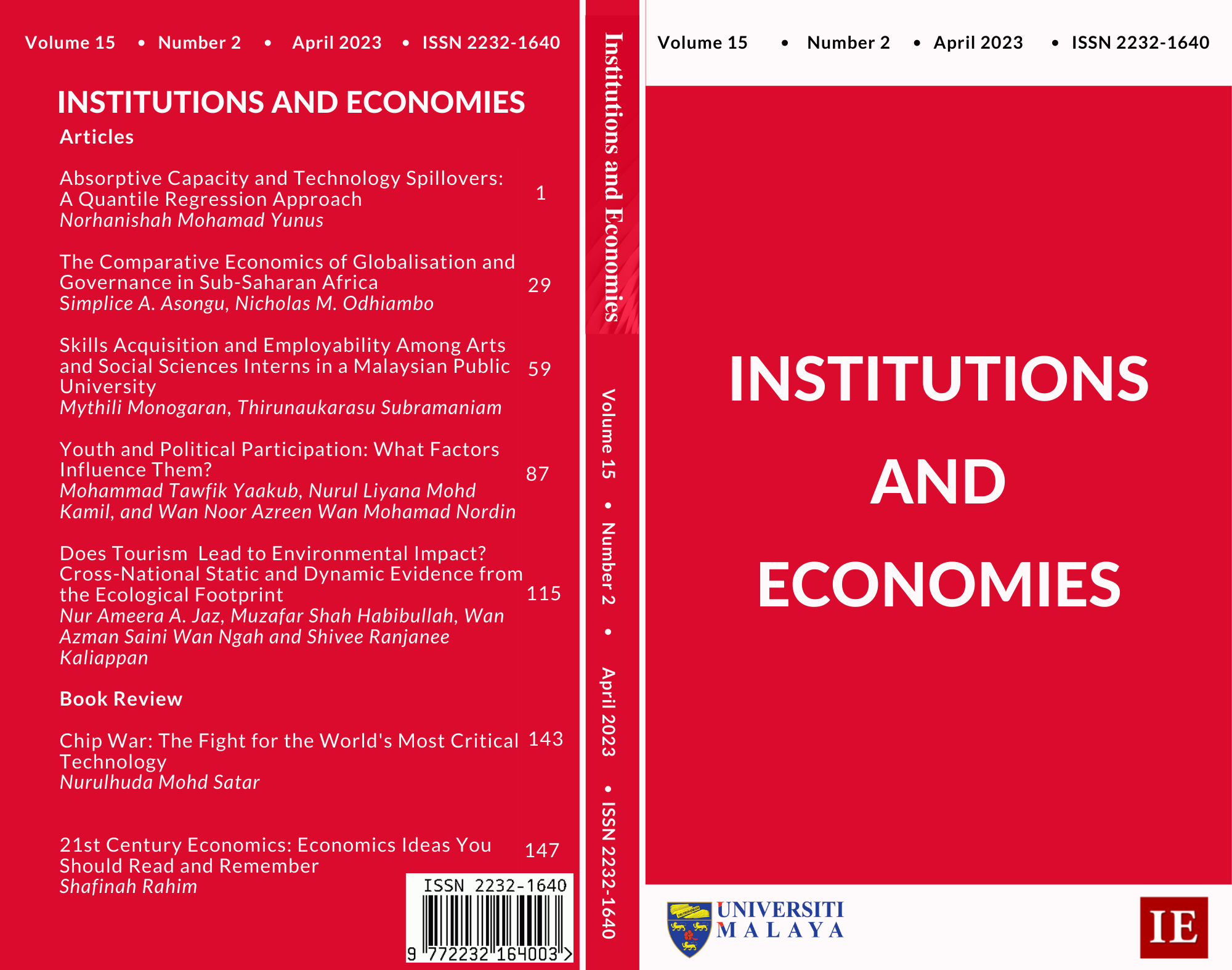Absorptive Capacity and Technology Spillovers: A Quantile Regression Approach
DOI:
https://doi.org/10.22452/IJIE.vol15no2.1Keywords:
Technology effects, Foreign direct investment, Human capital, Absorptive capacity, Quantile regressionAbstract
Employing a quantile regression estimator, the study presents new evidence on the role of human capital in exploiting the technology effects from foreign direct investment (FDI) in low-technology industries. A new model of human capital to capture the non-linearity of FDI effects according to employees’ educational qualifications was developed. This study examined whether workers’ absorptive capacity had different effects on FDI spillover at different points of conditional distribution. Although the study found that the ability of employees with degrees and diplomas to exploit foreign technology exceeds the median quantile, it also acknowledges the existence of both ‘over-skilled’ and ‘over-educated’ workers at a higher quantile of FDI distribution. As the problem of shortages and mismatch between skills and education for workers with degrees and diplomas still hinders firms from applying advanced technologies from FDI, this study proposes using the law to make firms work with universities. Firms could inform universities of the industry’s in-demand skills regularly and get involved in the development of the university curriculum to ensure that graduates are equipped with skills and knowledge that can be ‘transmitted’ to different industries.
Downloads
Downloads
Published
How to Cite
Issue
Section
License
Submission of a manuscript implies: that the work described is original, has not been published before (except in the form of an abstract or as part of a published lecture, review, or thesis); that is not under consideration for publication elsewhere; that its publication has been approved by all co-authors, if any, as well as tacitly or explicitly by the responsible authorities at the institution where the work was carried out. Transfer of copyright to the University of Malaya becomes effective if and when the article is accepted for publication. The copyright covers the exclusive right to reproduce and distribute the article, including reprints, translations, photographic reproductions, microform, electronic form (offline and online) or other reproductions of similar nature.
An author may self-archive the English language version of his/her article on his/her own website and his/her institutions repository; however he/she may not use the publishers PDF version which is posted on www.ijie.um.edu.my. Furthermore, the author may only post his/her version, provided acknowledgement is given to the original source of publication and a link must be accompanied by the following text: The original publication is available at www.ijie.um.edu.my.
All articles published in this journal are protected by copyright, which covers the exclusive rights to reproduce and redistribute the article (e.g. as offprint), as well as all translation rights. No material published in this journal may be reproduced photographically or stored on microfilm, in electronic database, video disks, etc., without first obtaining written permission from the publishers. The use of general descriptive names, trade names, trademarks, etc., in this publication, even if not specifically identified, does not imply that these names are not protected by the relevant laws and regulations.
The copyright owners consent does not include copying for general distribution, promotion, new works, or resale. In these cases, specific written permission must first be obtained from the publishers.








